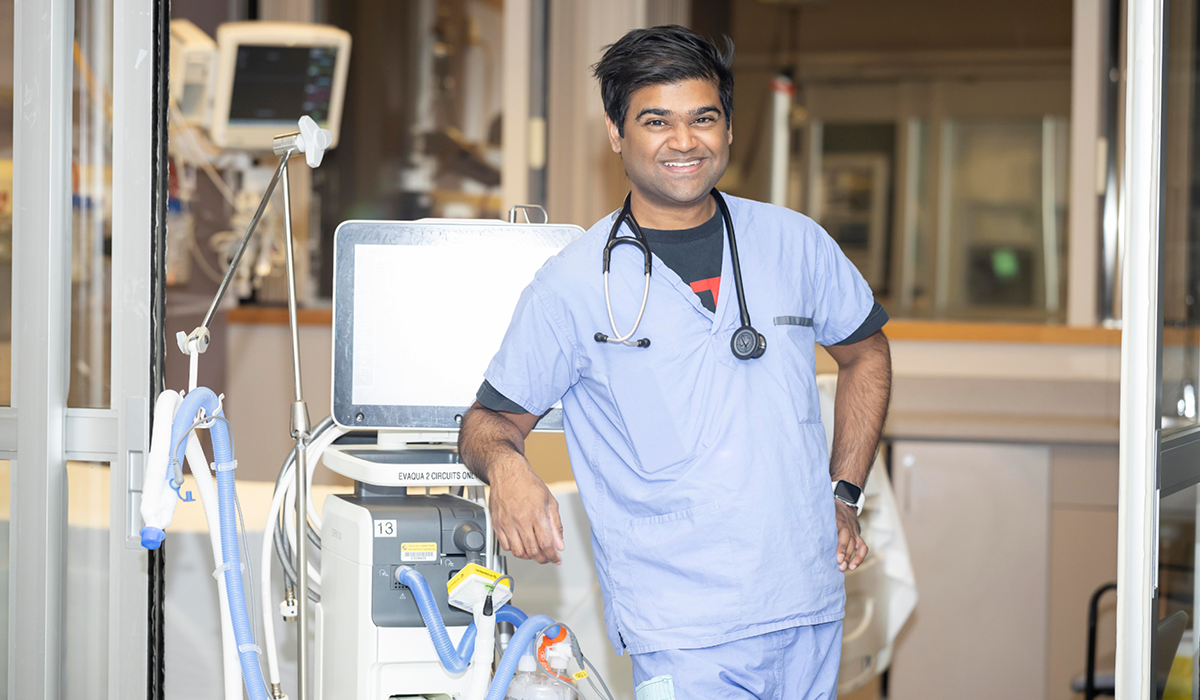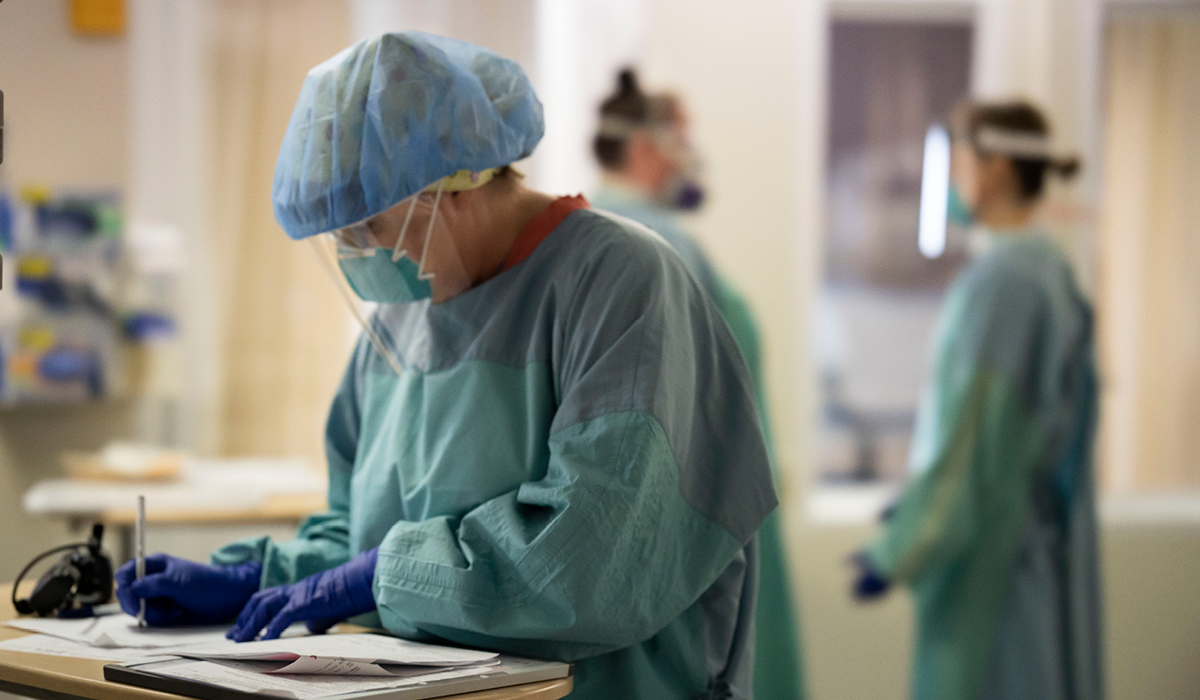
Dave and his fellow RTs are the ones with the clinical skills and expertise who ensure that a patient has an open airway, is being appropriately ventilated and receiving enough oxygen. This includes both patients who are able to breathe on their own, and through artificial devices such as a ventilator. They collaborate with the world-class medical teams at VGH, helping care for asthmatics, trauma patients, organ transplant recipients, patients with severe head injuries, COVID-19 patients, and others.
“RTs see patients from their first breath as babies through their entire lives, from childhood to adulthood, and often towards the end of their lives as well,” says Dave. “Our work takes us to every area of the hospital, from admission to discharge and beyond, as we are also working out in the community, meeting our patients when and where they need us.”
It’s a lot of work to care for a single patient, but this is why he chose his career — even at the cost of seeing his own family.

